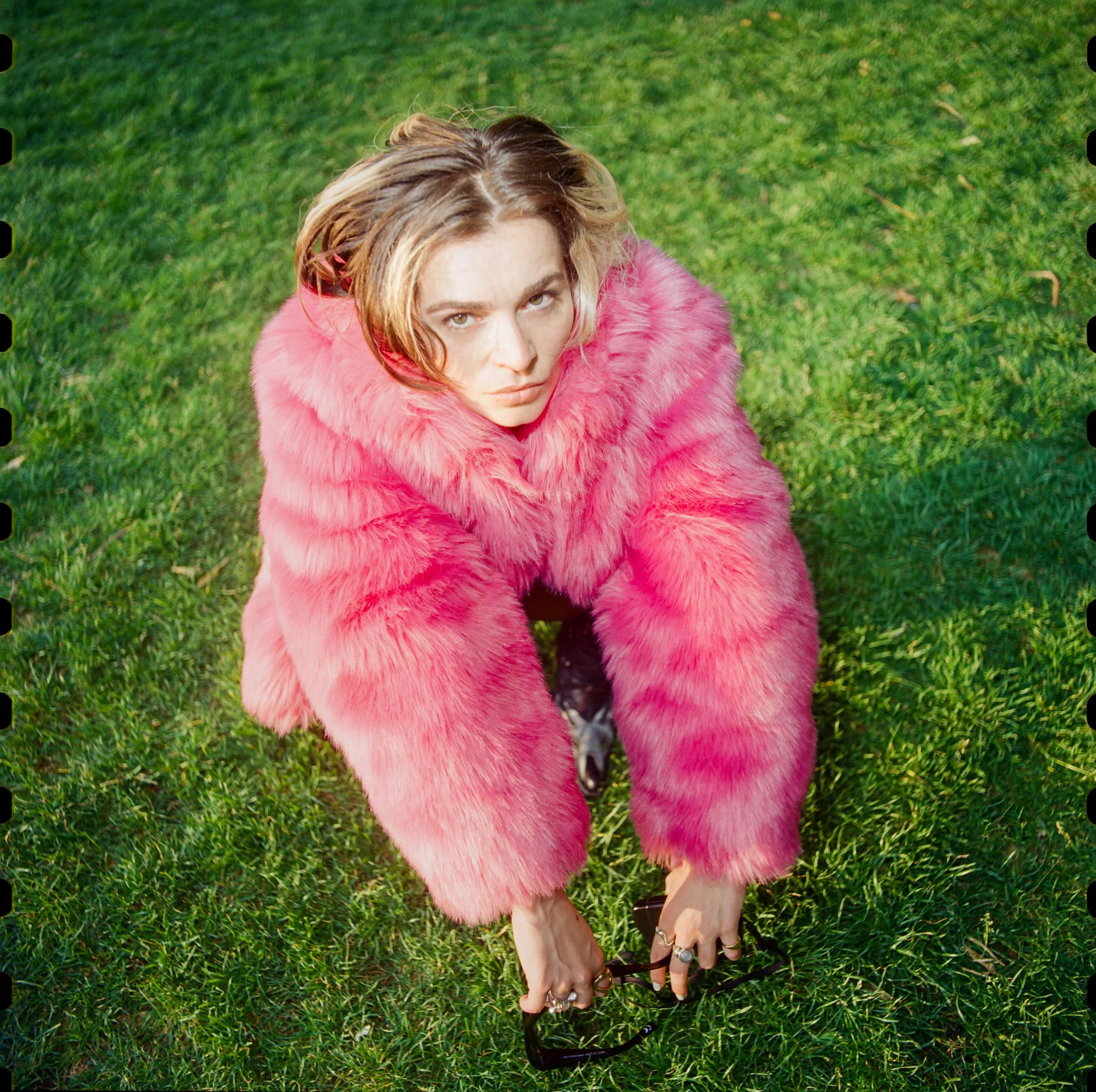IN CONVERSATION WITH OLYMPE4000
Interview by Samo Šajn
Olympe4000 is a Paris-based DJ and producer known for her energetic and emotional music. Her new EP MUTANTE is more than just club music. It’s personal, emotional, and full of energy. With powerful beats and voice notes from a close friend, she dives into themes like identity and self-expression.
“Mutante” is great for the dancefloor, but it also feels really personal. How did you mix those two sides together?
Honestly, I think club music should feel like a space where you can be raw, messy, and unapologetically. I think dancing is a way of processing emotions, and I didn’t want to choose between making people dance or making them feel something deeper, I tried to give them both. It’s that balance of intensity and vulnerability that makes it exciting. Mutante” is kind of like that: joy and discomfort coexist, like laughing while your heart breaks.
Anaco’s voice is a big part of the EP. How did the idea to use their voice messages come about?
It just felt right. Anaco’s voice has this way of sounding like it’s floating through different realities, and I wanted that feeling in the tracks. Sometimes words hit harder when they’re not polished. I think of it as capturing a glitch in the emotional matrix, something that doesn’t quite fit but makes total sense when you listen.
“Nos Sexualizan” talks about being reduced to a stereotype. Why was it important for you to include that message in a club track?
It came from that frustration of being seen as just one thing, as if people already know you without even listening. I love playing with the contrasts of sexualization too, how we can reclaim it, reshape it, and just own it.
I think stereotypes are like cheap sound bites, they try to flatten something complex into one predictable loop. I like to twist that around, play with it, mess it up. The idea of reclaiming sexualization is fascinating to me, taking something that’s supposed to reduce you and amplifying it. I like how the dancefloor is this weird space where you can embody clichés and break them at the same time. It’s like performing a stereotype until it self-destructs.
There’s a lot of contrast in the music, quiet moments, loud drops, fast and slow parts. Was that a way of showing how identity can feel?
Absolutely. Life isn’t this smooth, one-dimensional experience. Identity is like a badly tuned radio sometimes: shifting frequencies, static, sudden bursts of clarity. I wanted the music to feel like that too. It’s like when you’re dancing and suddenly realize you’re lost in your own head, but your body keeps moving anyway. Those contrasts are just different sides of the same coin, raw but also deliberate in a way that doesn’t need to explain itself. It’s how I see identity, fluid, unpredictable, and never just one thing.
“Showtime” feels like stepping into a bold, new version of yourself. Does performing feel like that for you too?
Yes, but it’s not about pretending to be someone else. For me, performing is a kind of truth. It’s the continuation of my relationship with music before anything else. It starts with passion, with the need to express something real, even if it’s messy or loud.
Being on stage is walking a line between who I think I am and how I’m perceived. There’s a tension there, between performance and presence, but I don’t see them as opposites. Sometimes performing is the most honest version of myself.
Tell us about the video. How did it come about, what is the message behind it?
The video is a visual extension of the themes explored in the EP. It’s about transformation, identity, and finding strength in your own complexity.
We shot it with close friends and a few fans who answered the call, and honestly, that made it feel real. It wasn’t just a production; it was more like a celebration of being together and making something raw and weird and beautiful. Having people, I care about around just gave it this authentic, carefree vibe. It was chaotic and fun, and that’s exactly the point.
What do you hope people feel or think about when they listen to “Mutante”?
I hope they feel like they’ve wandered into a place where things don’t quite make sense but still feel right. I like the idea that the tracks can feel like a shared secret between strangers on the dancefloor, like a fleeting moment of connection that leaves you questioning what just happened. I guess I want people to feel a little out of control, but in a way that makes them smile.
If they walk away feeling a little braver or just a little more okay with their contradictions, then I’ve done my job. Plus, if it makes them feel just a bit more fabulous, even better.
CREDITS:
Photography Léo Estlimbaum
Video directed by Benoit Carduner & Antoine Floch
Video produced by Radial Studio




